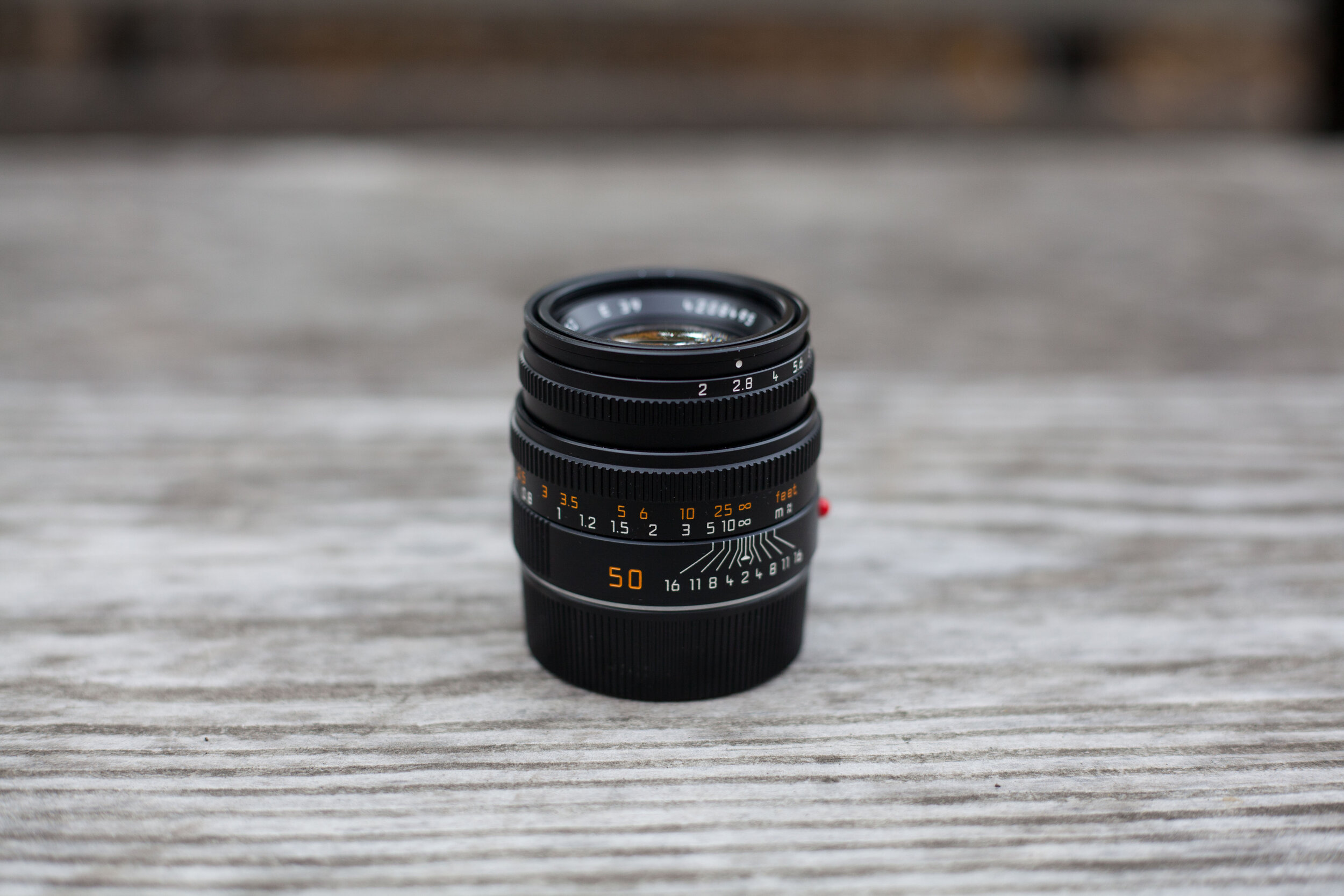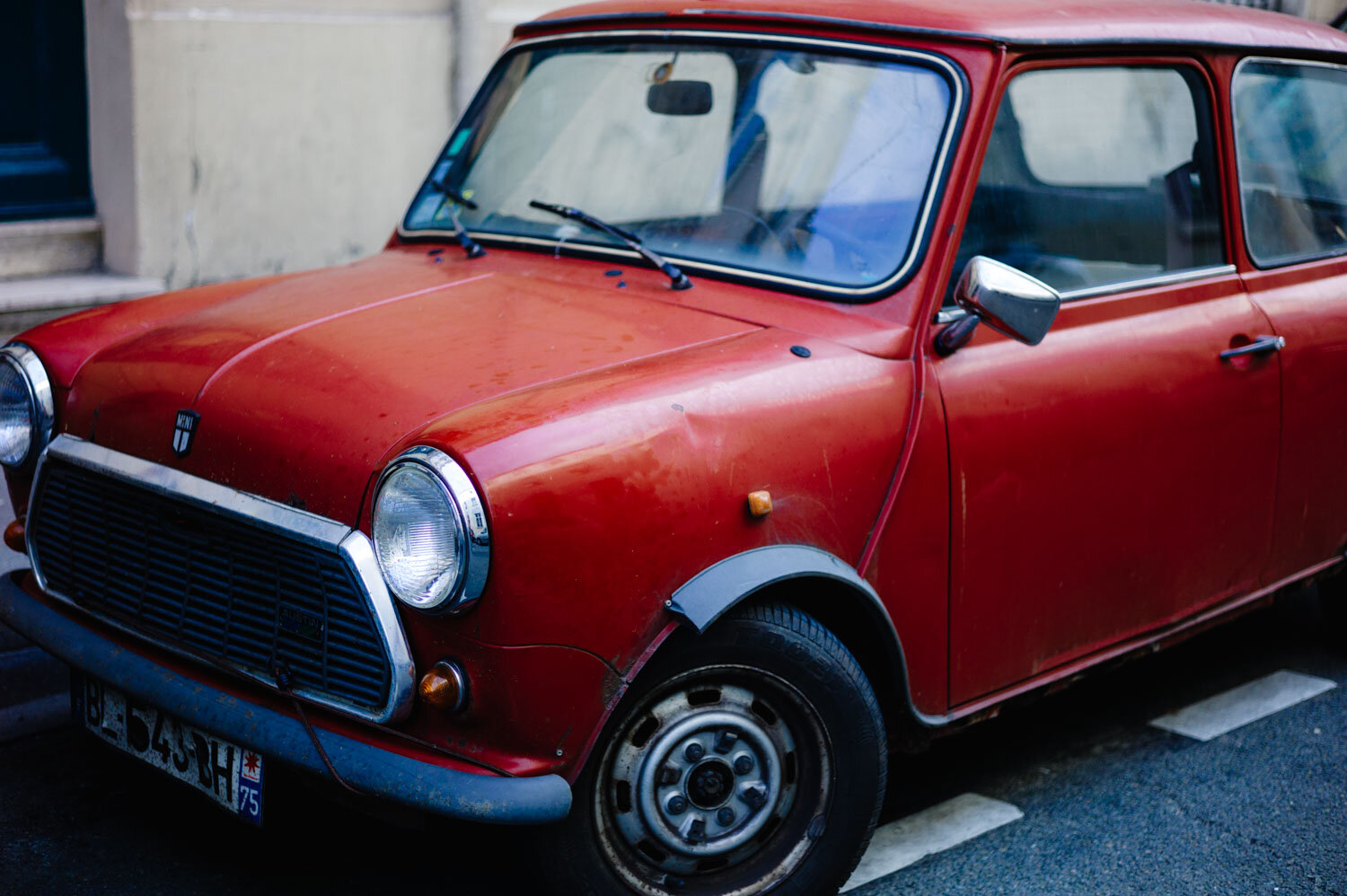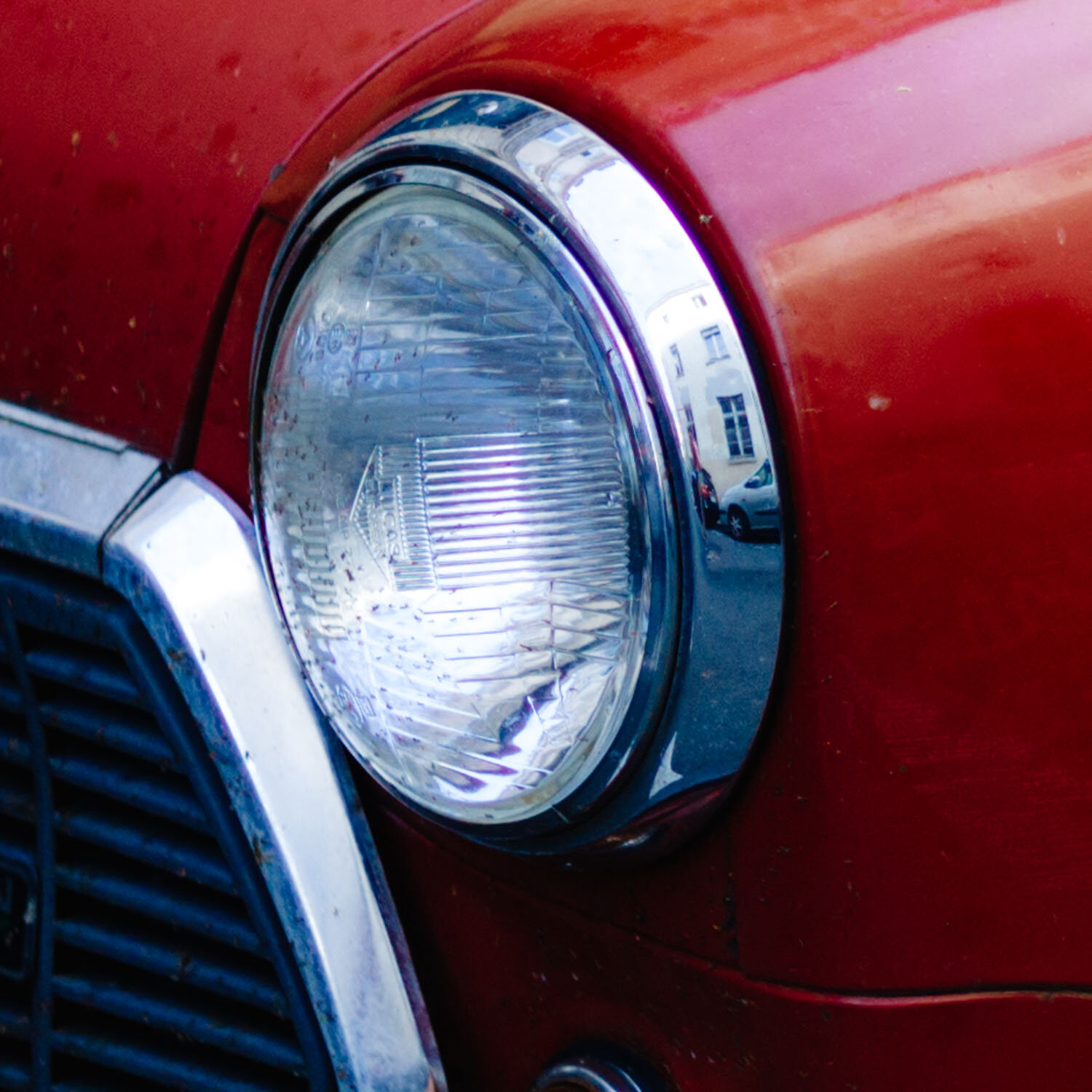Updated March 2025
Introduction
Like many of the 50mm lenses available in Leica M mount, the Summicron doesn’t really have any significant flaws. It’s sharp, compact, well-built, and makes beautiful photos.
Leica M9
Leica M9
About this lens
The Summicron is a simple double-Gauss design and is almost identical in design to the Zeiss 50mm f/2 Planar. Leica has used this design since 1979, but updated the mechanical design in 1994. There are no aspherical surfaces or floating groups, but this lens doesn’t need them to perform excellently.
Build quality and mechanics
Fantastic. All metal construction. Both the focus and aperture rings feel really, really good. The built-in hood feels solid and works well.
Mounted on a Leica M6 TTL
Size and feel
Perfection. I absolutely love how this lens looks and balances on an M camera, and it feels delightful to use. There is no focus tab, but gripping the focus ring directly feels very natural.
Image quality
Distortion: None.
Vignetting: Minimal.
Chromatic aberration: Minimal/none.
Bokeh: The Summicron has smooth and pleasant background blur most of the time. In some conditions you can notice some “soap-bubble bokeh” which can make backgrounds appear harsh. This could be a downside for some people but I personally like it.
f/2, Leica M9
f/2, Leica M6 TTL, Fuji Superia 400
Sharpness: The Summicron is tack-sharp through almost the entire frame at f/2. There is some smearing/haze in the edges and corners, which quickly sharpens up by f/2.8-f/4. Here are two samples at f/2 which give an overview of corner-to-corner performance:
f/2, Leica M9
Center
Edge
Corner
f/2, Leica M9
Mid-frame
Corner
When shooting high-contrast subjects wide-open, it’s possible to get some purple fringing. It’s not enough to bother me but it’s worth mentioning:
f/2, Leica M9
Image quality stays good even at minimum focus distance. Here’s a sample shot wide-open at 0.7m:
f/2, Leica M 262
In summary, the Summicron isn’t 100% perfect but will deliver sharp images in almost all real-world circumstances.
Focus shift: I remember seeing some focus shift when I tested for it at 0.7m, but I never noticed significant focus shift in my photos.
Summary and recommendations
Leica M9
Leica M9
The 50mm Summicron is a fantastic standard lens. It offers great image quality, great build quality, and ideal handling. Based on this glowing review, it would be reasonable to assume that I would recommend buying one. But the Summicron faces two big problems. The first is that it retails for $2995, and rarely goes below $1500 on the used market. The second is that better alternatives have come to market.
The Voigtlander 50/2.2 (review) is sharper, smaller, and focuses closer than the 50 Summicron for literally 1/5th the price. The only trade-offs are the 1/3rd slower aperture and more vignetting. It’s currently my favorite 50mm lens and it would be hard to recommend spending multitudes more to get the 50 Summicron. And even for those who demand a true f/2 lens, there are more compelling options than the 50 Summicron. The Voigtlander 50/2 APO-lanthar (review), for example, offers truly perfect performance without sacrificing much in size, weight or cost.
I’ll always have a soft spot for the 50 Summicron, but I wouldn’t recommend it to anyone trying to get the best lens for the money.
Good
Image quality
Build quality
Size and feel
Built-in hood
Bad
More expensive than Zeiss/Voigtlander alternatives
Buy here
Making this website is my hobby and hosting it costs $200/year. If you decide to buy this lens and want me to get paid a commission, please complete your purchase using one of these links. Alternatively, you can buy something from my accessories page or buy me a coffee!
Other alternatives
Recommended:
Leica 50 Summilux ASPH (review)
This lens is bigger, less ergonomic, and vastly more expensive than my favorite 50/2 lenses, but it offers significantly shallower depth of field while maintaining superb central image quality. For those who want f/1.4 and can afford it, this is my top recommendation.
Voigtlander 50/1.5 II (review)
I found this lens did not render as beautifully as the 50 Summilux ASPH, but its combination of speed, sharpness, and compactness make it a very compelling lens for the money.
Not recommended:
Zeiss 50/2 Planar (review)
I previously described this as an ideal 50mm lens, but it’s become harder to recommend given that it costs more than the Voigtlander 50/2.2. There are good deals on the used market but I would not recommend paying the full retail price.
Leica 50mm f/2 APO-Summicron ASPH
This lens offers similar performance to the Voigtlander APO and is a bit better in terms of size and ergonomics. But that’s not enough to overcome its price tag of over $8000.
Voigtlander 50mm f/3.5 Heliar
This lens offers optical perfection with a fairly limited f/3.5 aperture in a tiny but odd-looking package. For a similar price you can just get the Voigtlander 50/2.2, so I’m not sure who this lens is for.
Zeiss 50mm f/1.5 Sonnar
Voigtlander 50mm f/1.5 Heliar
These lenses use vintage optical designs and should only be used by those who intentionally want soft, dreamy images with lots of aberrations. They also have very strong focus shift, which makes them a pain to use on rangefinders.
Additional reading
Review by Andrew Brestansky
Comparison vs Leica 50 Summilux ASPH by Andrew Brestansky
Review by KJ Vogelius
Massive 50mm comparison by 47 Degrees
More sample images
Leica M9
Leica M 262
Leica M9
Leica M9
Leica M9
Leica M 262
Leica M6 TTL, CineStill 50D
Leica M 262













